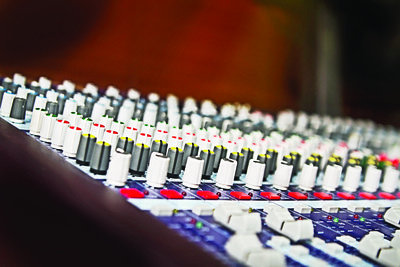The most famous moment of folk singer Richie Havens’ career was at the 1969 Woodstock Music Festival. He was the opening act who, at the urging of the promoters, performed for more than three hours, mesmerizing the audience while the other artists scheduled to perform sat in traffic. At one point onstage, he ran out of material, so he improvised the lyrics to “Freedom,” a song that would become the iconic Woodstock anthem. He sang his original folk music—and recorded covers of songs by artists like The Beatles and Bob Dylan—in a soulful, urgent tone that became his trademark. He sang at Bill Clinton’s 1993 inauguration, and “Freedom” was heard most recently on the soundtrack to Quentin Tarantino’s 2012 Django Unchained. As a guitarist, Havens was famous for his rhythmic style of playing. And play he did—for many years, constantly touring and creating new music. He spent his later years in Jersey City and retired in 2010 from the grueling grind of touring. He was seen around town by folks like JC Mag’s editor, Kate, who always wanted to interview him but respected his desire for peaceful anonymity.
We tried to track down folks who wanted to talk about him. Some family members were reluctant, but we were lucky to find his longtime lead guitarist Walter Parks, who also lives in Jersey City. He told me that Richie was still very well-known in the Greenwich Village music scene, which is where it all began for him in the 1960s. Coming here was a welcome respite from the constant recognition in New York City, and from his hectic life on the road. “For his time in Jersey City, Richie was pretty private. He came here to relax and get some rest,” Walter says. “But at the same time, he was very approachable. He loved to talk to people on the street and had all the time in the world for people in the neighborhood. He was very friendly and hated snobbery of any kind. He didn’t look at people and calculate whether they were important. He was a very unpretentious man—exactly what you would think he would be.”
Besides being band mates, Walter and Richie lived close to each other—Walter moving here from Manhattan soon after he joined Richie’s band in 2001. A veteran blues guitarist and former member of the folk duo The Nudes, Walter knew Jersey City through Kaleidoscope Sound, a recording studio (now based in Union City) that Walter, Richie, and Dayna Kurtz, a jazz singer and mutual friend, had all recorded in. While The Nudes had opened for Havens before, it was Kurtz who suggested Walter when she heard that Richie was looking for a new guitarist.
Living near Richie made rehearsing that much easier, but besides that, Walter and his wife, Margo, were on the lookout for more space. Margo works in various business roles in the music industry and runs her office from home, while Walter has his own home studio, along with a large collection of vintage guitars.
In May, a month after Richie’s death, I met with Walter and Margo at their Congress Street home, the former Jersey City Statuary Building. It’s been gut-renovated into a meticulous, multi-purpose loft, with beautifully refinished walls covered with paintings and photographs. Instruments and equipment rest neatly on the hardwood floors that Walter himself painstakingly restored. “It took a whole month of nonstop work,” he tells me with understandable pride. He says that Richie would come by often to offer construction advice, which Walter appreciated. Margo and Walter bought the house in 2005, drawn to the artistic and spiritual traditions it had housed. People (priests, mainly) came from all over for the artfully crafted religious statues. In fact, Margo says, they kept coming long after the house had changed hands. She remembers being knee deep in renovation, only to look up and find a kindly priest standing in her living room, inquiring as to the state of his statue repair. “He couldn’t have been more gracious about it,” Margo recalled.
“We’re trying to carry on an artistic tradition here,” Walter says. When Richie was alive, they regularly rehearsed in the house when not on the road. Today, Walter writes and rehearses his solo music here, along with music with Swamp Cabbage, the swamp-blues band he fronts. From her desk next to Walter’s recording area, Margo organizes music festivals, bookings, and studio time for artists. They’re graciously eager to discuss each other’s projects, and equally enthusiastic to talk about many neighbors who are also making their living in the arts. Walter is also on a mission, he says, to “cultivate art and culture in this town.” He regularly opens his doors to anyone with interest or artistic inclination to see the work that they’ve done. He’s passionate not just about music but about civic pride, the beautiful turn-of-the-century architecture in Jersey City, and what this town can become, “with commitment to preservation and culture and art,” he says.
For their 10-plus years working together, Richie and Walter spent much of their time on the road—to the tune of about 100 gigs a year. When they came home, they spent time together rehearsing at Walter’s home or checking out live music in Manhattan. Walter was politely unwilling to share personal details about Richie’s life, out of respect for Richie’s family and their wishes for privacy. What he would share is how much he treasured his time with Havens, on-stage and off. “He took me all over the world,” Walter says. “He was a very inspiring leader and role model, and a great man who was so, so loved by so many people.”—JCM
